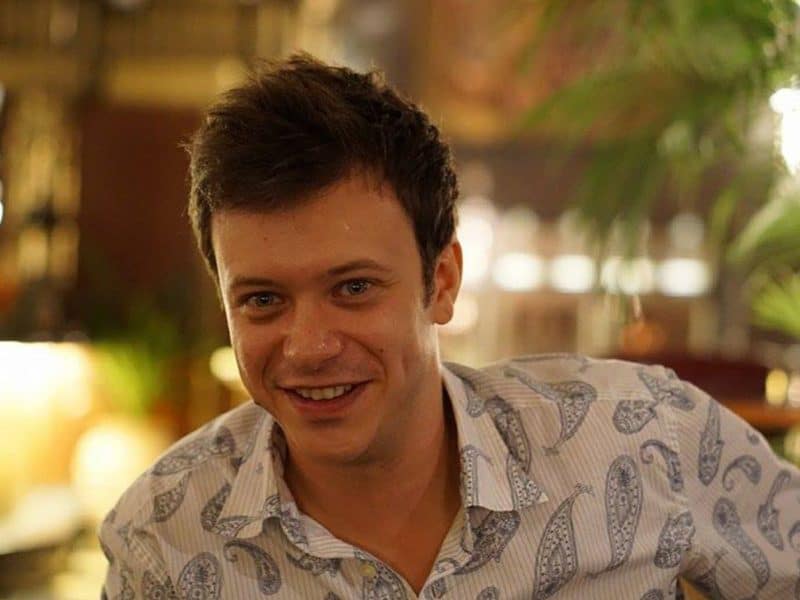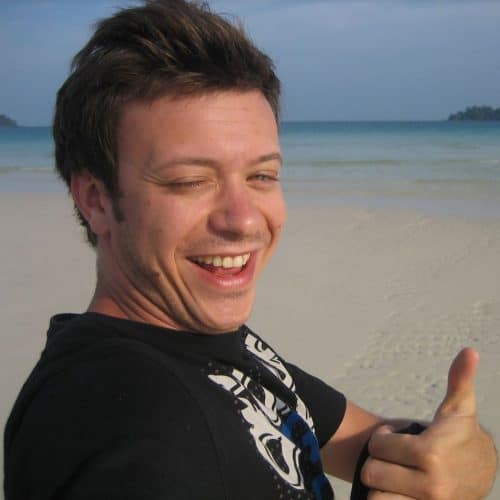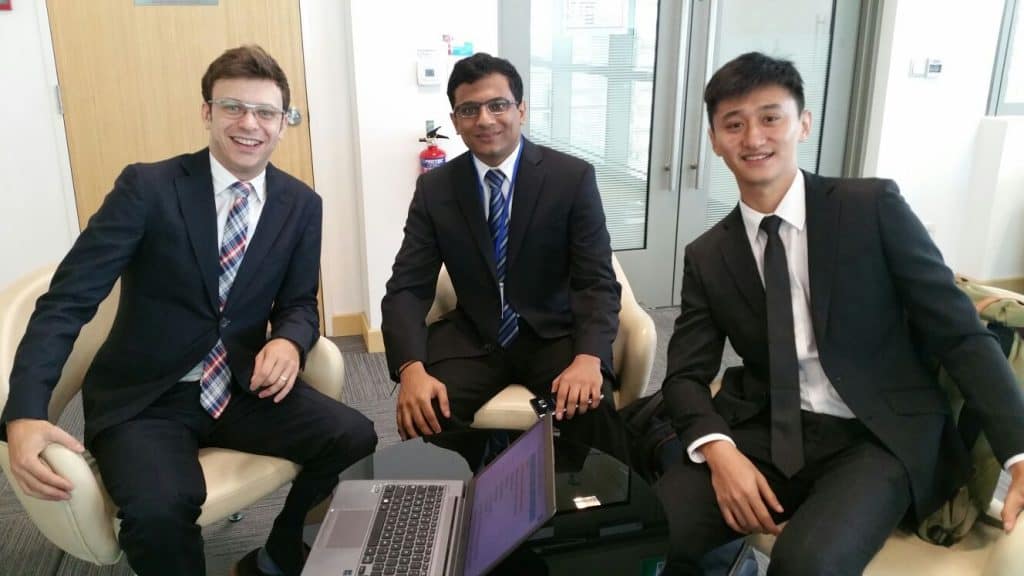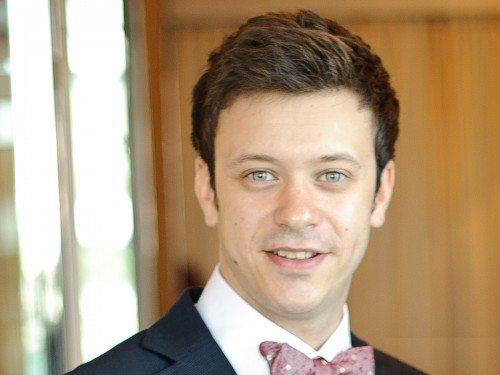I first got to know Madu via LinkedIN.
This was back in Oct 2015 and he was a recent follower of my blog. Coincidentally both of us registered for the same event within that week and that is where we first caught up.
We met up a few days later over coffee and spent close to 3 hours learning about each other products and businesses. You know those moments when you first got to know someone new but it felt like you had known them for ages?
That was how it felt for me. If not for other appointments, we probably would have spent the entire day at StarBucks talking.
He was still running MENTOR.Careers then and has since shifted his focus on his new business – Salary Board.
Madu always give me so much insights and wisdom. I hope you gain some of them too from my interview with him:
1. Please share a bit about what you do
Currently, I lead the launch of Salary Board, a Singaporean startup that allows HR professionals research and compares market pay data based on a variety of factors such as job description, company size, specific skills and more, in an accurate and reliable way.
The service will be soon available to the general public as well so that you can eliminate the doubt on how much you are worth in the market.
With this additional service, we aim to support professionals negotiate better their salaries and benefits.
What I do on a daily basis is pretty diverse, from new hires, project management, sales and marketing, help define and prioritise product features, administrative work and more. I guess this is common among all start-up founders.
I even do some coding when needed.
2. What were you doing before starting your business?
I´ve had been an entrepreneur for the last 5-6 years when I decided that the corporate life can´t provide me with the lifestyle I aim for.
And that despite working as a direct marketing specialist for the no. 1 Best Place to Work in Spain and the largest software download portal worldwide 🙂
First, I went to launch the Spanish branch of a large international ESP (Email Service Provider). That was an excellent practice since a lot of processes were in place and gave me the time to sharpen my B2B sales skills and abilities to build effective teams which I find precious for anyone launching new businesses.
Next, I moved to Singapore where I´ve co-founded together with a French media group a company offering B2B loyalty solution for large e-commerce websites.
We´ve had the luck to work with the biggest players in the market and it was a great period of growth for me acting as CEO of the company.
Keen to put my energy into more meaningful businesses, I did a personal exit a little over a year ago.
Our vision at Salary Board is to support professionals in SE Asia work in a workplace that they enjoy doing it. We choose to tackle salaries and benefits because this is one of the most aching problems we identified.
We will expand it in the future to include other aspects of the workplace.
3. How did the idea for this business come about?
My notebook contains a list of 40+ business ideas based on opportunities I´ve identified in the last couple of years. When choosing to work on Salary Board, the first question was what I can dedicate my energy to that aligns with what inspires other people I know and me, and at that intersection what are the strongest competencies that we have.
I befriended Adriel, my current co-founder, at The Hub Singapore and although we didn´t discuss this project from the beginning, we did explore ideas to do together since there were a lot of synergies on our values and how we think about building a company.
4. What sacrifices have you had to make to be a successful entrepreneur?
Wouldn’t call them sacrifices cause I love what I do and anything has an opportunity cost. Nevertheless, I do miss spending more time with friends and family. Also to travel at the same frequency, I used to do a couple of years ago. Hustling in a start-up can get pretty intensive at times.
5. How did you get funded?
We’ve been bootstrapping for some months using our money and two months ago we got an iJam grant which helped us accelerate our product development.
We work from a shared office, on a minimum plan, pay minimum salaries to ourselves and we focus on being as productive as possible. Tapping on our previous network of contacts has helped us to reduce some costs while working with excellent professionals.
Overall I think that Singapore is a sweet spot to start a start-up, especially because of the help from the Singapore government. Take for example the low rents, the grants and all that happens at BASH.
6. Could you describe your first sale and how it came about?
My first significant sale was a sponsorship deal for an email marketing boot camp that I co-founded in Spain. I was working from home and cheered out loud by myself when I received the confirmation email after weeks of pursuing the deal.
It felt really awesome!
7. How do you go about marketing your business?
The overall company strategy and objectives are the starting points when considering marketing activities. Next, I look at a well-defined content plan that will be applied on various channels where I test, test and test until being able to define an effective channel strategy.
From experience, partnerships with well-established brands that have common target market tend to give the best ROI. Secondly, direct marketing and SEM perform best but of course; there is a lot of variances depending on the business you are in.
8. Describe your typical day?
Happy to say that there’s no typical day. I’m usually up around 7.30 and every other day starts with a 20 minutes meditation. Sometimes I play squash. Both energise me, although in different ways. After breakfast with my wife, I would head to the office. I take advantage of the trip to read the news and prepare/review my agenda.
If I take the last week as an example, I will start the day with an interview or two for a position we are looking to fill. The rest of the morning I would spend it working on product dev, helping with the data cleaning or gathering more insights out of it.
After lunch, I would do some finance and admin tasks, such as preparing a contract or applying to a fintech incubation programme we are considering joining. Later would check on the progress of the MVP frontend before heading to a networking event or meeting possible partner, usually outside the office.
9. Who has been your greatest influence in your business and why?
I had the luck to be mentored by a couple of persons to whom I hold great respect and appreciation. Their example and teachings have significantly shaped who I am today. I maintain different relationships with them: a client, a teacher from my MBA, a former boss or purely an older entrepreneur friend.
Nonetheless, there are teachings to be taken in many people we interact with. I believe we just need to pay enough attention.
10. What has been your proudest moment in the history of your business and why?
The day I’ve joined a successful sales meeting that was run by one of my team members, with a potential customer. I realised that all the previous time invested in forming my collaborator was well invested and that he can now be autonomous. I believe entrepreneurs create opportunities for people to grow and develop, and I felt proud of the fact that I could be a part of it.
11. What were some of the biggest lessons that have impacted the way that you work?
I can name you two.
The day a contract with a significant provider wasn’t renewed. It made me think and act more seriously about contingency plans.
The day I decided, after a people management course, to use a GTD (get thing done) app. It took me about six months to make it a part of my life but it eliminates so much stress.
12. What is your biggest screw-up over your entrepreneurial journey?
Just one? :))
Would pick starting a company with a person I didn’t know very well and not setting clear expectations of what is required from each side. We went through 5+ months of frustrations during which a lot of the initial connections and skills of the co-founder turned out to be just smoke. It was a loss of time, money and energy but a lesson well learned.
13. If you could go back in time to speak with your 20-year-old self, what would you tell him?
There’s would be a couple of things, but three might stand out:
Have respect for persons and build real, authentic relationships with the people you work and live with.
Be wise in the decisions you take, because everything is in a dynamic balance, there’s no such thing as black or white. The reality is more like a quantum superposition.
Get as much feedback as you can about your actions and act upon that feedback by constantly trying to become better.
14. What advice would you give to aspiring entrepreneurs?
Build a business that resonates with what inspires you, solving a validated problem and that makes economic sense. And if you are in your 20s and you think you don’t know yourself all the way through, maybe it’s smart to figure that first.
15. Where can people find you online?
I could be reached at madu at salaryboard dot com and via LinkedIN.








